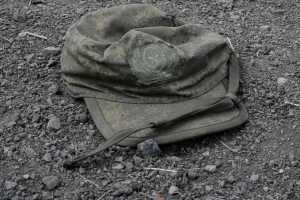
Ukraine will challenge EU grain restrictions if ban is extended
Ukraine will demand that the ban on grain imports imposed by five EU countries be lifted
Deputy Head of the Presidential Office Ihor Zhovkva said this in an interview with Bloomberg.
“If the European Commission extends its decision on Ukraine’s grain imports, we will complain to the arbitration panel under our agreement,” Zhovkva said.
Poland, which, along with Hungary, announced that it would extend the restrictions on its own if the European Commission did not take such a step, caused Zhovkva's dissatisfaction.
The deputy head of the President's Office said that Warsaw cannot act at its own discretion and that the European Commission should impose legal sanctions for violating the single market.
At the same time, the official said that de facto there is a blockade of Ukrainian food: “Poland doesn’t block the transit de jure, but de facto — there were protests, they increase time of our foodstuffs’ checks on the border,” Zhovkva said.”
Some details regarding ban on Ukraine grain imports
On February 2, Polish farmers began blocking checkpoints on the border with Ukraine. They were outraged that the uncontrolled inflow of Ukrainian grain to Poland had caused prices for their products to plummet. Local farmers argue that Ukrainian grain should have been transported through Poland only to ports, but it ended up on the Polish market.
On February 16 and 17, Polish farmers resumed protests on the border with Ukraine.
On March 29, Polish Prime Minister Morawiecki said that Poland promised to introduce rules that would limit the inflow of Ukrainian grain to the country, explaining that it could destabilize the import market.
On April 7, Ukraine agreed to stop exporting grain to Poland, and on April 15, the country approved a ban on the import of Ukrainian grain and other food products to Poland.
Later, оn April 15, Poland approved a ban on the import of Ukrainian grain and other food products to Poland. The government emphasized that this decision does not change the country's position on support and friendship with Ukraine.
In Romania, farmers are demanding a ban on grain imports and transit from Ukraine, threatening a nationwide protest.
On April 16, media reported that Bulgaria was also considering refusing to import Ukrainian grain, after Hungary and Poland had already made this decision.
On the same day, a spokesman for the European Commission said that unilateral actions by EU member states on trade were unacceptable.
On April 18, it became known that Poland would receive EUR 30 million in aid from the EU amid the crisis with Ukrainian grain.
After that, Warsaw decided to unblock the transit of Ukrainian agricultural products to European ports on April 21.
Also on April 16, Ukraine's Minister of Agrarian Policy and Food Mykola Solskyi held an online meeting with Hungarian Minister of Agriculture Istvan Nagy, who assured him that Hungary would not stop the transit of Ukrainian grain.
On April 17, Slovakia became the third EU country to ban imports of Ukrainian grain and other agricultural products.
On April 19, Hungary banned the import of 25 types of agricultural products from Ukraine. The ban on the import of grain, flour, honey, oil and meat from Ukraine to Hungary will last until June 30 this year.
On April 29, the European Commission agreed with Bulgaria, Hungary, Poland, Romania, and Slovakia on the transit of food produced in Ukraine through their territory.
On May 12, Poland, Bulgaria, Romania, Slovakia, and Hungary called on the European Commission to extend the embargo on agricultural products from Ukraine until the end of the year.
In late May, it was reported that four EU countries would insist on extending grain import restrictions from Ukraine until October. At the same time, Hungary wants to extend the restrictions until 2024.
Vitaliy Kulyk, Director of the Center for Researching Civil Society Problems, believes that Ukraine is responsible for the oversaturation of the Eastern European market with agricultural products.
On July 28, Romanian Foreign Minister Luminița Odobescu said that her country plays a significant role in the transit of grain and agricultural products from Ukraine. Almost 20 million tons have already transited through the country.
On August 4, Poland presented the EU with estimates of the investments needed to increase agricultural exports from Ukraine across the Polish-Ukrainian border to world markets.
On Friday, August 18, Ukrainian Prime Minister Denys Shmyhal arrived in Bucharest for a visit: together with his Romanian counterpart, Marcel Ciolacu, they signed a joint intergovernmental statement on strengthening cooperation in the transit of Ukrainian goods.
Moldovan President Maia Sandu said her country supports Ukraine in its war with Russia and is ready to help with grain transit. She expressed gratitude for the peace.
Hungarian Prime Minister Gergely Gulyás, chief of staff to the Prime Minister, says the country is seeking to extend the ban on the sale of Ukrainian grain to five EU member states.
- News














































